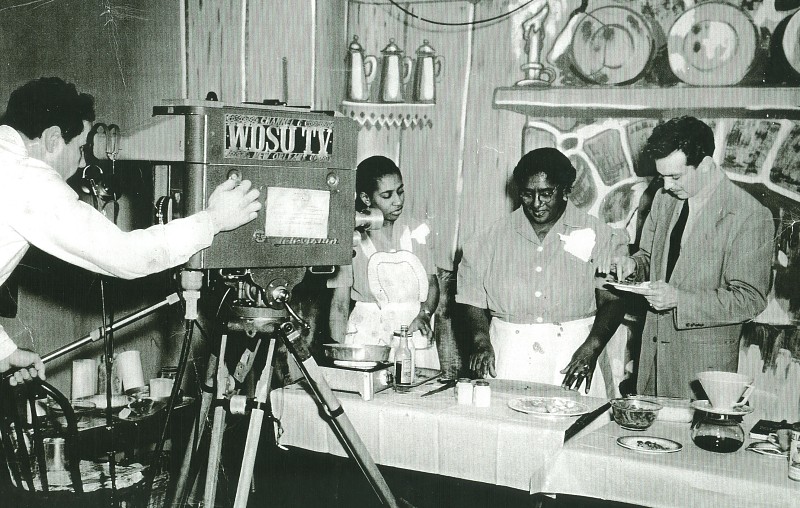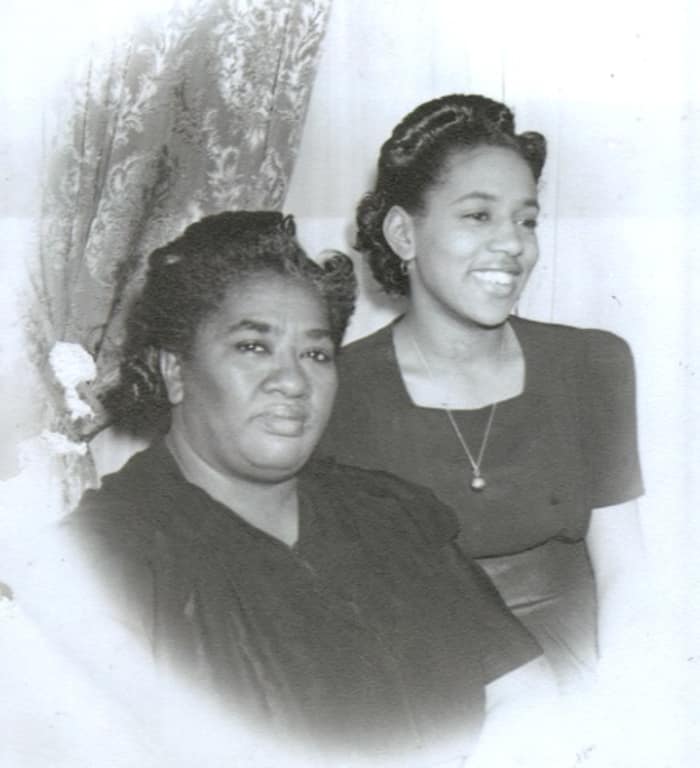
Unlike cuisines that were introduced to the United States in the last century (think Chinese via Cecilia Chiang and French by means of Julia Child), the cooking traditions of Black Americans have been enmeshed in the American culinary landscape since the country’s inception.
But that doesn’t necessarily mean that the foods and culinary practices of African and Black Americans have been familiar to white Americans. Lena Richard – chef, TV show host, restaurateur and author of an acclaimed Creole cookbook – did much to change that in the mid-20th century.
Born Lena Paul outside Baton Rouge, Louisiana, in 1892, Richard’s culinary career started young. At 14, she worked alongside her mother inside the home of a wealthy New Orleans family, becoming its full-time cook when matriarch Alice Vairin noticed her talent in the kitchen. Vairin was so impressed that she sent Richard to Miss Farmer’s School of Cookery in Boston, founded by the well-known New England cookbook author Fannie Farmer in 1902. She was the only woman of color in the program.
Richard would later recount of her time at Fannie Farmer, according to culinary historians,
“When I got way up there, I found out in a hurry they can’t teach me much more than I know. When it comes to cooking meats, stews, soups, sauces and such dishes we Southern cooks have Northern cooks beat by a mile. That’s not big talk; that’s honest truth.”
Richard graduated from the program in 1918 and returned to New Orleans, eventually opening her own cooking school, a number of gumbo shops, and a catering business. Two decades later, she self-published the Creole cookbook, which made its way into the hands of famed chef James Beard and food writer Clementine Paddleford, who both praised her work. With endorsements by two heavy hitters in the food world, Houghton Mifflin formally published the work as the New Orleans CookBook.

After a successful book tour and head-chef stints at New York and Virginia restaurants, Richard returned to New Orleans in the early 1940s to open Lena’s Eatery. By 1946, she started her own frozen-food business, where she sold fully cooked packaged dinners that were shipped across the country. A few years before Swanson-brand “TV dinners” became household staples, Richard had figured out a way to get her cooking into the mouths of those who couldn’t come to New Orleans and taste her legendary food themselves. It was nothing short of entrepreneurial genius.
Her popularity as one of the Big Easy’s most famous chefs led to her very own cooking show that aired two nights a week on WDSU-TV in New Orleans. Richard, the first Black woman to ever have her own TV show, demonstrated how to make Creole classics and other Louisiana staples from her decades-long cooking repertoire.
Interestingly, the majority of Lena’s viewers were white middle- and upper-class women at a time when Black Americans were still marginalized and without equal rights. As Lily Katzman wrote in the Smithsonian Magazine in 2020, “Richard artfully tore down racial and economic barriers in the heart of the Jim Crow South, improving the livelihoods of current and future African Americans in her community.” Richard masterfully used the latest technological medium (television) to help usher in a new era for Creole cooking – and what had previously been a regional cuisine gained national attention.
Tragically, in the midst of all her success, just as her TV show was a solidi hit and her frozen foods business was taking off, Richard died unexpectedly at age 58 of a heart attack. Her family continued to operate some of her restaurants until the last one shuttered in the late 1950s. Considering Richard’s incredible achievements and contributions to the American culinary world, it’s hard to understand how she has not been better remembered along with other boundary-breaking women of the 20th century. Perhaps it has something to do with her untimely death. Perhaps it has more to do with the color of her skin. Whatever the reason, Lena Richard deserves a place of prominence in the history of food. ◼
Victoria Flexer, author of “A History of the World in Ten Dinners,” received her master’s degree in historical studies from The New School. She specializes in sharing history through food, art and culture.

